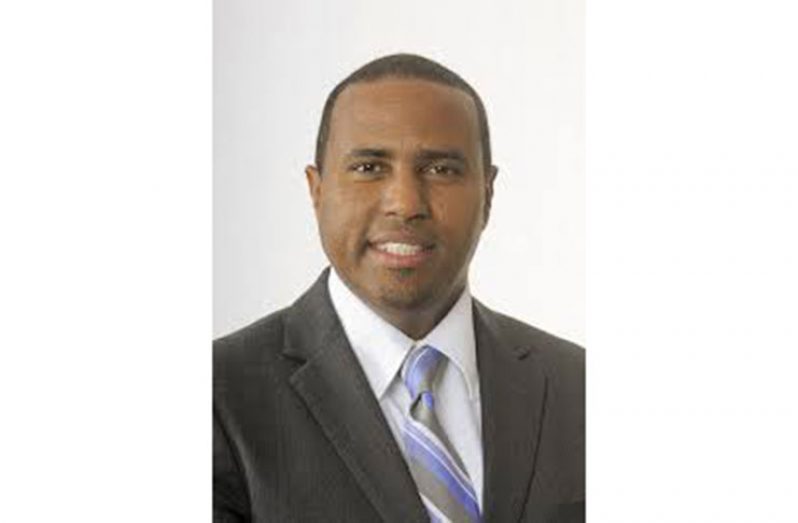— says key for national development
FOR Guyana and its Caribbean neighbours to be able to attract global investors, governments must improve their private sector relationships and ultimately their Doing Business Environment.
This is according to the Caribbean Development Bank’s (CDB’s) Director of Economics, Dr. Justin Ram and Regional Head of Private /Public Partnership (PPP) Brian Samuel.
The two spoke to the newspaper on Thursday at the bank’s Annual News Conference on Thursday in Barbados.
Providing statistics, Dr. Ram stated that 10 years ago, the CDB’s Borrowing Member Countries (BMCs) had an average ease of doing business rank of 81 out of 181 countries.
Now, the most recent Doing Business report shows that the Region has declined significantly to an average ranking of 126 out of 191 countries.
“We’ve been moving in the wrong direction,” Dr Ram said. “It’s time for us to put a stop to that trend and to begin moving back up that scale so that we can be competitive globally. So that global investors, domestic investors can look at the Caribbean as a place where they can do business and earn good rates of return.”
The economist stressed that for some time the CDB has been advocating for private sector-led growth in the Region, which will bring overall improvement to the Doing Business environment.
Giving an example, he stated that Jamaica is one country which implemented a number of reforms in this regard just about five years ago and now boasts a very robust private sector.
“If we want to see the private sector be the engine of growth within our economies, it’s important that we make it easier for the private sector to do business within our economies. That’s why in all of our interventions, particularly around policy-based loans, the interventions around MSMEs for example, we emphasise the need for government to reduce regulations to make it easier for businesses to be set up so that if an entrepreneur wants to establish a business in your country, that that process is not onerous and can be done in a very quick time,” Dr Ram said.
He noted that it should also be made easier for businesses to pay taxes and to import and export goods out of the port, which are all factors that will have a lasting impact on the doing business environment.
He stated that while there have been improvements in some countries, there is still a long way to go.
IMPROVEMENTS
According to the World Bank Doing Business Report 2019, Guyana has improved in areas of registering property; enforcing contracts; starting a business; paying taxes and dealing with construction permits, but slid eight places globally, from 126 to 134.
The country fell short in the area of the supply and reliability of getting electricity and the transparency of the tariff index, which highly contributed to its drop in the ranking.
The report reflects reforms implemented before May 2018.
Speaking with the newspaper on the sideline, Regional Head of PPP Brian Samuel agreed that Guyana is gradually making progress in this regard.
He stated that in 2018, the CDB provided assistance to the Government of Guyana in drafting and adopting a Public-Private Partnership (PPP) policy, which is now becoming active.
“We went down there a few times, we met with the government; we met with the government, private sectors and stakeholders and the government has adopted the PPP policy and is now in process of establishing a PPP unit within the Ministry of Finance and is actively promoting some projects,” Samuel said.
To date, there are more than 16 PPPs which the government is committed to utilising to help build the country’s economy, applied to the infrastructural sector in particular areas of electricity, telecommunications, water, transport and solid waste.
Key areas of development include the Demerara Harbour Bridge; the Linden- Lethem road link; the deep-water harbour and container port; the mini and maxi hydro plants and energy farms; the modernisation and dredging of port Georgetown and more.
Speaking further on the importance of such a policy, Samuels added: “It will give confidence to investors that Guyana is serious about this. Guyana’s private sector is nascent I would say. It’s not as thriving as for example, the private sector in Jamaica. But, when we had the discussions with the private sector, I was so impressed with the representatives that we met with because they’re anxious to get on board; they want to do more.”


.jpg)










